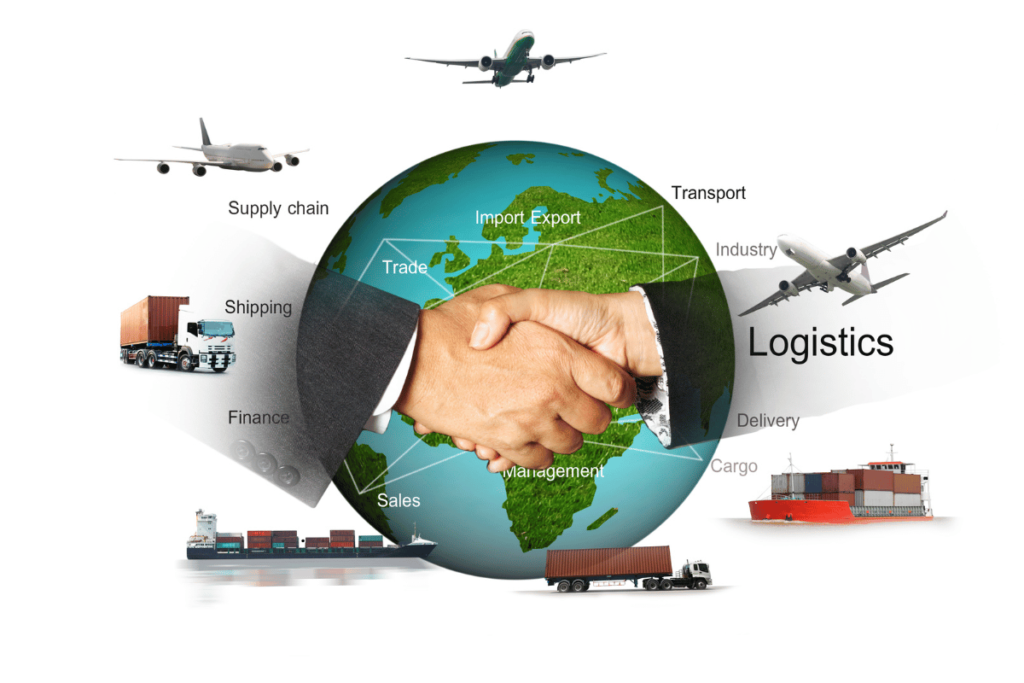How to Start a Business in Import/Export
To start a business in import/export, begin by identifying your niche to target the right market and stand out from competitors. Conduct thorough market research to understand your target market, pricing strategy, and trade regulations. Develop a detailed business plan including financial projections and market analysis. Set up a suitable legal structure for tax benefits and protection. Obtain required licenses and permits promptly to stay compliant. Vet reliable suppliers, negotiate shipping terms, manage customs, and build strong international partnerships. These steps lay a solid foundation for your import/export venture’s success.
Key Takeaways
- Identify a niche market for effective targeting and differentiation.
- Conduct thorough market research for tailored products and competitive pricing.
- Develop a comprehensive business plan with financial projections.
- Choose a suitable legal structure for tax benefits and compliance.
- Obtain necessary licenses, permits, and comply with import/export regulations.
Choosing Your Import/Export Niche
Choosing the correct import/export niche is vital for establishing a successful business in the global market. Market segmentation and competition analysis are essential steps in this process. By identifying specific market segments with distinct needs and preferences, you can tailor your products or services more effectively.
Conducting a thorough competition analysis allows you to understand your competitors’ strengths and weaknesses, enabling you to differentiate your offerings strategically. Product differentiation is key to standing out in a crowded market. Highlighting unique features or benefits that set your products apart can attract customers and build brand loyalty.
Additionally, a well-thought-out pricing strategy is crucial for ensuring competitiveness and profitability. Pricing your products or services appropriately based on market demand, production costs, and perceived value can help you capture market share while maximizing profits.
Conducting Market Research
To position your import/export business strategically, initiating thorough market research is essential for gaining insights into consumer preferences and industry trends.
Here are key steps to keep in mind:
- Competitor Analysis: Conduct a detailed evaluation of your competitors to understand their strengths, weaknesses, and market positioning. This analysis will help you identify opportunities to differentiate your business and capitalize on market gaps.
- Target Market Identification: Define your target market by segmenting potential customers based on factors such as demographics, psychographics, and buying behaviors. Understanding your target audience will enable you to tailor your products or services to meet their specific needs and preferences.
- Trade Regulations: Familiarize yourself with the trade regulations governing import/export activities in your target markets. Compliance with these regulations is vital for avoiding legal issues and ensuring smooth operations.
Additionally, develop a pricing strategy that takes into account factors such as production costs, market demand, and competitor pricing to establish competitive yet profitable pricing for your products or services.
Developing a Business Plan
Initiate the process of crafting a detailed business plan by outlining your company’s goals, strategies, and operational structure. Begin by conducting a thorough market analysis to understand the competitive landscape, target audience, and potential growth opportunities. This analysis will help you tailor your import/export business to meet the demands of the market effectively.
When creating financial projections, consider factors such as start-up costs, operational expenses, pricing strategies, and potential revenue streams. Develop a detailed budget that outlines your expected cash flow, profit margins, and return on investment. By forecasting your financials accurately, you can make informed decisions and secure funding from investors or financial institutions.
Incorporate market analysis strategies into your business plan to identify market trends, consumer preferences, and potential barriers to entry. By understanding the market dynamics, you can position your import/export business for success and mitigate risks effectively.
Setting Up Legal Structure
When starting an import/export business, selecting the right legal entity is essential for your operations.
You’ll need to navigate the registration requirements to guarantee compliance and legitimacy.
Understanding these key points will lay a solid foundation for your business structure.
Legal Entity Selection
Selecting the appropriate legal entity is an essential step in establishing the foundation for your import/export business. When choosing a legal structure, it’s important to take into account the tax implications and liability protection associated with each option.
Here are three key entities to contemplate:
- Limited Liability Company (LLC): An LLC combines the liability protection of a corporation with the flexibility of a partnership. It shields your personal assets from business debts and obligations, while allowing for pass-through taxation, where profits are taxed at the individual level.
- Corporation (Inc.): A corporation is a separate legal entity from its owners, providing strong liability protection. While corporations face double taxation on profits, they offer advantages such as easier access to funding and the ability to issue stock.
- Sole Proprietorship: The simplest form of business structure with no legal distinction between the owner and the business. While easy to establish, sole proprietorships offer no liability protection, making the owner personally responsible for debts and legal actions.
Registration Requirements
Considering the legal entity you decide on for your import/export business, the next step involves understanding the registration requirements to officially establish your chosen legal structure. Ensuring compliance with import/export regulations is important to avoid penalties and legal issues. Registering your business appropriately will also determine how you are taxed, including tariffs on imported goods. Below is a table outlining key aspects related to registration requirements for import/export businesses:
| Registration Requirement | Description | Importance |
|---|---|---|
| Import/Export Regulations, Compliance | Familiarize yourself with the specific regulations governing imports and exports. Compliance is essential to avoid legal repercussions. | Understanding and adhering to these regulations is critical for the smooth operation of your import/export business. |
| Import/Export Taxation, Tariffs | Understand the tax implications and tariffs associated with importing and exporting goods. Proper knowledge will help you price your products effectively. | Being aware of the taxation and tariffs will enable you to plan your finances better and remain competitive in the market. |
Obtaining Necessary Licenses and Permits
To effectively operate your import/export business, you must make sure that you obtain all the necessary licenses and permits required by the relevant authorities. Ensuring regulatory compliance is vital for the success and sustainability of your business. Here are three key steps to obtaining the necessary licenses and permits:
- Permit Applications: Begin by identifying the specific permits and licenses required for your import/export business. Research the application process for each permit, including any forms to be filled out, supporting documents needed, and associated licensing fees. Promptly submit your applications to avoid delays in starting your operations.
- Regulatory Compliance: Familiarize yourself with the regulatory framework governing import/export businesses in your jurisdiction. Understand the documentation requirements, import/export restrictions, and any compliance standards set by the authorities. Complying with regulations is essential to avoid penalties and maintain a good standing in the industry.
- Follow-Up: After submitting your permit applications, follow up with the relevant authorities to track the progress of your requests. Address any additional requirements or inquiries promptly to expedite the approval process. Stay organized and keep detailed records of all communications and documentation related to your permits and licenses.
Finding Reliable Suppliers
When looking for reliable suppliers, it’s important to establish a thorough vetting process to make sure they meet your quality and reliability standards.
Effective communication and alignment on expectations are key components in building a successful partnership with your suppliers.
Supplier Vetting Process
In establishing a robust supplier vetting process, your primary focus should be on identifying and evaluating potential partners who align with your business values and quality standards. Supplier evaluation is essential to make sure that you’re working with reliable and high-quality suppliers.
Here are three key steps to take in this process:
- Quality Control Measures: Prioritize suppliers who’ve stringent quality control processes in place to guarantee the consistency and reliability of the products you intend to import or export.
- Supplier Audits: Conduct regular audits to assess the supplier’s facilities, production processes, and overall compliance with industry standards to maintain a high level of quality assurance.
- Reference Checks: Reach out to other businesses that have worked with the supplier to gather feedback on their reliability, communication, and ability to meet deadlines. This firsthand information can provide valuable insights into the supplier’s performance and credibility.
Communication and Alignment
By prioritizing clear and consistent communication, you can effectively align with reliable suppliers who meet your business standards and expectations in the import/export industry.
When dealing with international suppliers, it’s important to navigate cultural differences and overcome language barriers to guarantee effective communication. Understanding the customs and communication styles of your suppliers can help build trust and prevent misunderstandings that may hinder your business relationships.
Establishing strategic alliances with suppliers can also enhance your import/export venture. By forming strong partnerships, you can create mutually beneficial agreements that promote long-term success. Additionally, integrating your suppliers into your supply chain can streamline operations and improve efficiency.
This collaboration allows for better coordination and communication throughout the importing and exporting process.
Negotiating With Suppliers
Effective negotiation with suppliers is essential for securing the best terms and prices for your import/export business.
To excel in supplier negotiation, consider the following key strategies:
- Pricing Strategies: Research the market thoroughly to understand the price ranges for the products you aim to import or export. This knowledge will empower you to negotiate competitive prices with suppliers and potentially secure better deals.
- Contract Terms: Pay close attention to the contract terms offered by suppliers. Make sure that the agreements are clear, include all necessary details such as quality standards, delivery schedules, and pricing structures, and protect your interests as well as those of the supplier.
- Payment Terms: Negotiating favorable payment terms is vital for maintaining healthy cash flow. Try to strike a balance between prompt payments to suppliers and ensuring that you have enough time to receive payments from your customers. Discussing discounts for early payments or setting up milestone-based payments can be beneficial for both parties.
Understanding International Shipping
You need to understand the intricate web of shipping regulations that govern international trade, ensuring compliance is essential to avoiding costly delays.
Understanding the basics of freight forwarding will be vital for managing the movement of goods from one country to another efficiently.
Maneuvering through the customs clearance process demands attention to detail and accuracy to prevent any hiccups in the import/export process.
Shipping Regulations Overview
Understanding international shipping regulations can be an intricate and essential aspect of conducting import/export business operations. Compliance with shipping regulations and trade laws is critical to guarantee the smooth flow of goods across borders.
Here are three key points to take into account when dealing with shipping regulations:
- Documentation Requirements: Different countries have varying documentation requirements for imports and exports. These may include commercial invoices, bills of lading, certificates of origin, and import/export permits. Ensuring that all documentation is accurate and complete is vital to avoid delays or penalties.
- Restricted and Prohibited Goods: Each country has its list of restricted or prohibited goods that can’t be imported or exported. It’s important to familiarize yourself with these lists to prevent any legal issues or confiscation of goods during customs inspections.
- Tariffs and Duties: Understanding the tariffs and duties imposed on imported goods is crucial for pricing your products competitively. Tariffs can vary based on the type of goods, their origin, and the trade agreements in place between countries.
Freight Forwarding Basics
Understanding the intricacies of international shipping requires a thorough grasp of freight forwarding fundamentals. Freight forwarding serves as a crucial link in import/export logistics optimization, facilitating the movement of goods between different countries. While it offers numerous benefits such as streamlined transportation, cost-efficiency, and expertise in navigating complex regulations, challenges like potential delays, damage to goods, or communication issues may arise. To effectively manage these aspects, it’s essential to work closely with experienced freight forwarders who can coordinate shipments, handle documentation, and ensure smooth transit.
| Freight Forwarding Benefits | Freight Forwarding Challenges | Import/Export Logistics Optimization |
|---|---|---|
| – Streamlined transportation | – Potential delays | – Efficient movement of goods |
| – Cost-efficiency | – Goods damage risks | – Regulatory compliance |
| – Regulatory expertise | – Communication issues | – Timely delivery |
Customs Clearance Process
Understanding the customs clearance process is essential for successfully conducting international shipping operations. When delving into the customs clearance process, there are key aspects that you must consider to streamline your import/export business:
- Customs Brokerage: Engaging a customs broker can facilitate the complex customs clearance process by ensuring all necessary documentation is in order and regulations are adhered to. They act as intermediaries between you and customs authorities, easing the burden of compliance.
- Duty Classification: Proper duty classification is pivotal to determine the tariffs and taxes applicable to your imported goods. Each item must be correctly classified based on its characteristics and intended use to avoid costly errors or delays during customs clearance.
- Documentation Accuracy: Accurate and complete documentation is essential for successful customs clearance. Any discrepancies or missing information can lead to hold-ups, fines, or even seizure of goods. Double-checking all paperwork before submission is a crucial step in the process.
Managing Customs and Duties
To successfully navigate the complexities of international trade, you must have a thorough understanding of managing customs and duties. Customs regulations play an important role in the import/export business, governing the movement of goods across borders. Familiarizing yourself with the specific customs requirements of each country you’re dealing with is essential to avoid delays and potential fines.
One key aspect to take into account is duty exemptions. Duty exemptions can provide significant cost savings for your business by allowing certain goods to enter a country duty-free. To take advantage of duty exemptions, you must meticulously follow the guidelines set by each country’s customs authorities. Keeping detailed records of your imports and exports will help ensure compliance with these regulations.
Moreover, staying informed about changes in customs policies and tariff rates is crucial. Regularly monitoring updates from customs authorities and trade associations will help you adapt your import/export strategies accordingly.
Building International Partnerships
How can you strategically cultivate strong international partnerships to expand your import/export business network effectively? Building international partnerships is important for the success of your import/export business. Here are three key points to keep in mind:
- Understanding Cultural Differences: It’s essential to be aware of and respect cultural differences when engaging with potential partners from different countries. Take the time to learn about their customs, traditions, and business etiquette to avoid misunderstandings that could hinder your partnership.
- Overcoming Language Barriers: Language barriers can pose a challenge when building international partnerships. Invest in language translation services or hire bilingual staff to ensure effective communication. Clear communication is essential for establishing trust and fostering strong relationships with your partners.
- Building Trust Through Relationship Building: Trust is the foundation of successful partnerships. Focus on building rapport and establishing trust with your international partners through consistent communication, transparency, and reliability. Invest time in developing personal relationships to strengthen the business bond and create a mutually beneficial partnership.
Frequently Asked Questions
How Can I Protect My Business From Currency Fluctuations?
To safeguard your business from currency fluctuations, consider using hedging strategies based on thorough market research. By analyzing trends and implementing protective measures, you can mitigate risks and guarantee more stable financial operations in the import/export industry.
What Are the Best Practices for Handling Customs Delays?
When managing customs delays, it’s essential to understand customs regulations and implement effective strategies. Stay proactive by maintaining clear communication with customs officials, having accurate documentation ready, and exploring expedited shipping options to manage import/export delays efficiently.
How Do I Handle Cultural Differences in International Negotiations?
Like a delicate dance, cross-cultural negotiations require finesse. Prioritize cultural sensitivity, employ effective negotiation strategies, and focus on relationship building. Understanding nuances can lead to successful international business dealings and long-term partnerships.
What Are the Key Factors to Consider When Choosing a Freight Forwarder?
When selecting a freight forwarder, prioritize reliability and expertise. Consider cost, import/export regulations, and documentation requirements. Guarantee seamless logistics by choosing a partner who understands your business needs and can navigate regulations effectively.
How Can I Mitigate the Risks of Political Instability Affecting My Business?
When managing political risks in business, visualize your strategy as a sturdy ship in stormy seas. Strengthen government relations, conduct thorough market research to anticipate changes, diversify suppliers and markets, and consider political risk insurance for added protection.
Conclusion
Now that you have charted the intricate world of import/export business, you’re ready to set sail on your entrepreneurial journey.
With a solid niche, thorough market research, and a well-crafted business plan, you’re equipped to conquer the challenges ahead.
Remember, like a skilled captain steering through rough waters, staying informed, adaptable, and building strong partnerships will guarantee your success in the international trade arena.
Bon voyage to your new business venture!









